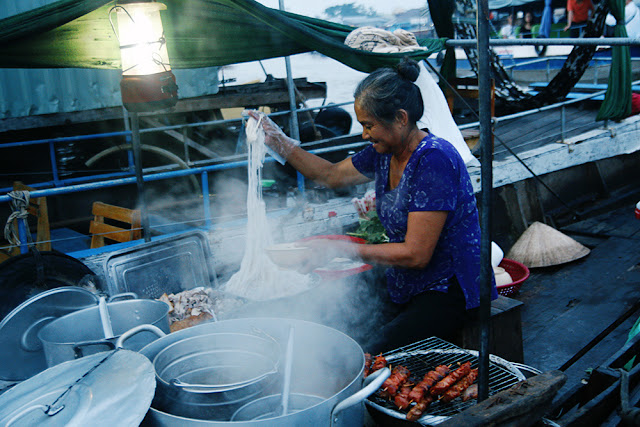Donsadon
Black pork is a specialty unique to Jeju. It’s made from the flesh of domesticated black pigs bred only on the island. If you pass a farm or two, you may well see the small, smooth-skinned pigs snuffling around. Grilled black pork is a dish so well-loved in Jeju that there’s a whole street devoted to it — head to Black Pork Street for pork restaurants galore. If you’re looking to head a bit more off the beaten track, however, Donsadon is an excellent option for fresh, sizzling barbecued black pork.Myeongjin Jeonbok
Jeju is famous for its abalones, and Myeongjin Jeonbok is one of the most popular abalone restaurants on the island. Abalones are traditionally harvested by haenyeo, Jeju’s ‘mermaids’ — female divers who descend to depths of up to 15 metres to collect delicacies such as octopus, sea urchins, oysters and other shellfish, including abalones. Myeongjin Jeonbok has just four dishes on the menu — abalone sizzling stone pot rice, grilled abalone, rice porridge with abalone and sliced raw abalone. This means that each dish is honed to perfection. The ingredients are fresh and delicious, and the restaurant is good value for money compared to other similar establishments. Expect to wait for a table, as it’s a popular spot.Deomjang Jungmun
For the Jeju specialty dish godeungeo gui — grilled mackerel cooked to perfection — head to Deomjang Jungmun in Jeju city. The mackerel is served with a wide variety of complementary side dishes, and portions are sizeable and good value for money. Mackerel is particularly well-loved in Jeju because it’s inexpensive, and in the hands of a skilful chef, there is a delicious counterpoint between the fish’s soft, slightly sweet flesh and crispy, sizzling skin.Samsunghyeol Haemultang
Haemultang is a spicy seafood hotpot, filled with an abundance of fresh seafood. It’s popular all over Korea, but the Jeju version is especially tasty due to the availability of a wide variety of delicious shellfish and other seafoods. The dish is bursting with flavour and healthy vitamins; as well as seafood, the rich broth contains a number of vegetables, and is seasoned with gochujang, a spicy bean paste. Haemultang is the specialty dish at Samsunghyeol Haemultang, and the restaurant also boasts an extensive menu of other seafood options. The seating is traditional Korean style.Friendship Sashimi Restaurant
Fresh sashimi is a sought-after delicacy all over Korea. Mouth-watering slices of raw seafood are served with side dishes and a mixture of soy sauce and fresh chilli for dipping. Look out for street food tents (or pojangmacha) all over Jeju, or head to a specialty sashimi restaurant such as Friendship Sashimi Restaurant, which has great views over the Jeju seafront.Manna Sikdang
Hairtail fish, or galchi jorim, is a fish prized by Jeju’s locals. Long, thin and silvery, it’s hard to keep hairtail fish fresh for long once it’s caught, so Jeju — with its ultra-fresh seafood — is the best place to eat this unique fish. It’s normally served in a spicy stew. Many restaurants on the island serve this dish, as it’s now quite famous, but one of the most well-known places to go is Manna Sikdang. Be prepared to wait for a table, and go early, as the restaurant closes once it has sold out for the day.Guksu Madang
Guksu Madang’s specialty dish is momguk, or gulfweed soup. Pork bones are boiled to make broth, and flavoured with onions, sour kimchi and vegetables. The star ingredient is gulfweed, a seaweed known as ‘mom’ or ‘mojaban’ in the Jeju dialect. Momguk is a dish unique to Jeju, and cannot be found elsewhere in Korea. The dish’s history lies in Jeju’s past: with a climate that included harsh sea winds and cold weather, the island’s crops were vulnerable to failure, and so the Jeju natives turned to seaweed for a reliable source of nutrition. Momguk was traditionally served at family gatherings and events.See more: 5 most romatic destinations for couples in Jeju, South Korea
Source: Internet

















